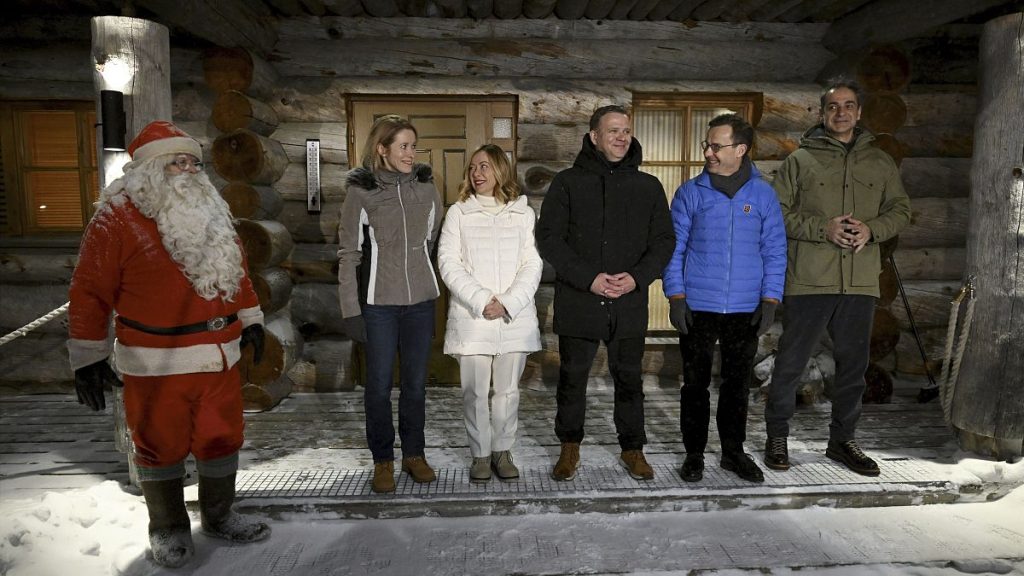The North-South Summit on European security and defense convened in Saariselkä, Finland, bringing together leaders from across Europe to address critical issues facing the continent. Prime Minister Petteri Orpo of Finland hosted Prime Minister Giorgia Meloni of Italy, Prime Minister Kyriákos Mitsotákis of Greece, Prime Minister Ulf Kristersson of Sweden, and EU High Representative for Foreign Affairs Kaja Kallas for discussions focused on defense preparedness, border security, and migration. The summit’s timing underscored the growing concerns over European security in the wake of several geopolitical challenges, including the ongoing war in Ukraine and increased migratory pressures.
A key point of discussion revolved around the damage inflicted on undersea cables in the Baltic Sea in November. The incident coincided with the presence of the Chinese vessel Yi Peng 3 in the area, prompting a joint inspection by authorities from Finland, Sweden, Denmark, and Germany. While Swedish authorities confirmed that Chinese representatives were conducting their own investigations aboard the vessel and had invited Swedish observers, Prime Minister Kristersson expressed deep concern about the incident, highlighting the vulnerability of the Baltic Sea and the potential for intentional disruption. Though refraining from direct accusations, Kristersson’s remarks reflected the summit’s focus on potential security threats and the need for increased vigilance.
The summit also addressed the pressing issue of migration and border security, a topic of increasing concern for many European nations. Prime Minister Orpo highlighted Finland’s controversial “deportation bill,” which would allow the country to reject asylum seekers at its eastern border with Russia. Orpo claimed to have garnered support for the bill from other leaders at the summit, despite facing strong criticism from human rights organizations citing violations of international law. The bill’s fate remains uncertain pending review by the European Commission, but Orpo’s assertion of support from Commission President Ursula von der Leyen suggests a potential shift in European asylum policies.
The confluence of security and migration concerns underscored the complex challenges facing European leaders. The damaged undersea cables highlighted the vulnerability of critical infrastructure and the potential for both accidental damage and deliberate sabotage, requiring increased cooperation and vigilance among European nations. Simultaneously, the migration debate exposed deep divisions within Europe regarding the balance between national security concerns and international humanitarian obligations. Finland’s proposed deportation bill exemplified this tension, prompting questions about the future of asylum policies within the EU.
The summit’s format, which included meetings with border experts, facilitated confidential discussions and the exploration of new initiatives. This approach reflects the growing need for collaborative solutions to complex transnational challenges. By bringing together leaders and experts, the summit aimed to foster a deeper understanding of the interconnected nature of security, defense, and migration, ultimately seeking to develop effective strategies to address these crucial issues. The presence of the EU High Representative for Foreign Affairs further underscored the importance of a unified European approach to these challenges.
Prime Minister Orpo’s statement emphasizing Europe’s responsibility for its own security and the need for strong leadership within both the EU and NATO reflects the broader geopolitical context of the summit. He identified Russia as the greatest threat to European security, accusing Moscow of attempting to consolidate power and sow discord within the continent. Orpo also highlighted the challenging geopolitical situation in the Middle East and North Africa, acknowledging the multifaceted nature of the security landscape and the need for a comprehensive approach to address these diverse threats. The summit served as a platform for European leaders to discuss these concerns and strategize on how to strengthen their collective security posture in the face of these challenges.














